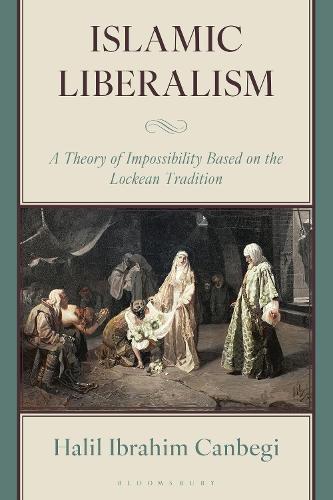
Islamic Liberalism: A Theory of Impossibility Based on the Lockean Tradition
(Hardback)
Publishing Details
Islamic Liberalism: A Theory of Impossibility Based on the Lockean Tradition
By (Author) Halil Ibrahim Canbegi
Bloomsbury Publishing PLC
Rowman & Littlefield Publishers
10th July 2025
United States
Classifications
Tertiary Education
Non Fiction
Islam
320.51088297
Physical Properties
Hardback
230
Width 152mm, Height 229mm
Description
In Islamic Liberalism: A Theory of Impossibility based on the Lockean Tradition, Halil Ibrahim Canbegi investigates the inherent inconsistencies of Islamic liberalism by examining the philosophical and theological foundations of both liberalism and Islam. Canbegi draws on Lockean liberalism, asserting that John Locke's emerging liberalism is deeply rooted in theological concepts such as covenant theology, natural law, and the distinctive nature of Christianity itself. In contrast, the author argues that Islam lacks the necessary theological and intellectual framework to develop a coherent version of liberalism, often termed Islamic liberalism. Canbegi maintains that this concept merely represents a superficial juxtaposition of Islam and liberalism, rather than a genuine synthesis. Ultimately, the author concludes that Islamic liberalism is merely a heterogeneous amalgamation of Islamic and liberal ideas, which do not combine into a unified whole. This critical analysis challenges prevailing notions and invites readers to reconsider the complex relationship between these two influential systems of thought.
Reviews
A Theory of Impossibility Based on the Lockean Tradition undertakes a challenging task: refuting the possibility of Islamic liberalism. Canbegi argues that the Islamic political tradition lacks the Lockean foundation that underpins Western liberalism. According to Canbegi, Islamic liberalism stands only as a juxtaposition of Islam and liberalism; it does not represent something distinct from Islam or liberalism. This impossibility, he contends, stems from fundamental differences between the Western and Islamic traditions in their conceptions of natural law.
This book warrants attention for two main reasons. First, it boldly challenges the emerging intellectual consensus that supports the compatibility of Islam and liberalism. Second, it transcends practical legal debates by addressing the structural conceptssuch as natural lawthat define the relationship between these two traditions.
Author Bio
Halil Ibrahim Canbegi is dedicated political scientist and scholar specializing in comparative politics, political theology, radicalization, and terrorism. Currently based in Germany, he earned his Ph.D. in Political Science from Middle East Technical University.
